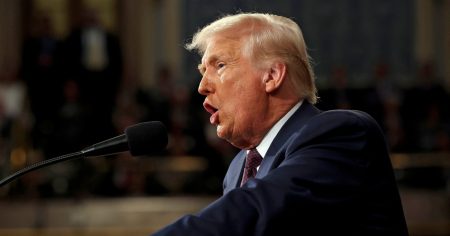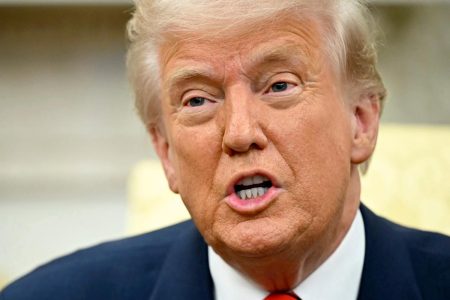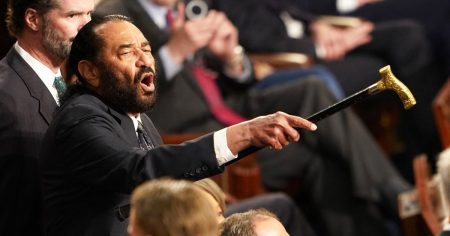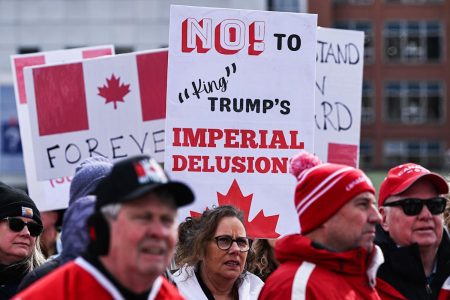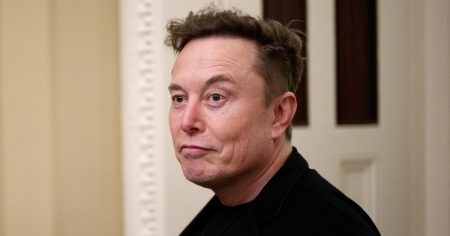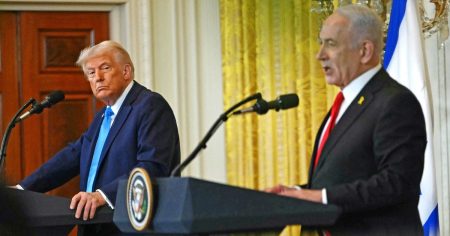A Divisive Figure Takes the Reins: Robert F. Kennedy Jr. Confirmed as Health Secretary
A Historic and Controversial Confirmation
In a deeply polarized vote, the GOP-controlled Senate confirmed Robert F. Kennedy Jr., a controversial anti-vaccine activist, as the new Secretary of Health and Human Services (HHS). The vote, which fell largely along party lines, saw 52 lawmakers in favor and 48 opposed. Kennedy’s confirmation marks another major win for President Donald Trump, who has seen all of his Cabinet-level nominees approved by the Senate. Despite the victory, the nomination was not without its dissenters. Senator Mitch McConnell (R-Ky.), a childhood polio survivor and a key Republican leader, broke ranks with his party to oppose Kennedy. McConnell criticized Kennedy’s “record of trafficking in dangerous conspiracy theories” and his role in undermining trust in public health institutions.
A Controversial Figure at the Helm
Kennedy, a member of the storied Kennedy family, has long been a vocal advocate for vaccine skepticism, a stance that has drawn widespread criticism from the medical and scientific communities. His confirmation as head of the HHS, which oversees critical public health agencies like the Centers for Disease Control and Prevention (CDC), the National Institutes of Health (NIH), and the Food and Drug Administration (FDA), has raised concerns among lawmakers and health experts. McConnell emphasized that Kennedy had failed to demonstrate the qualifications and trustworthiness needed to lead such a vital agency. “As he takes office, I sincerely hope Mr. Kennedy will choose not to sow further doubt and division but to restore trust in our public health institutions,” McConnell said.
A Surprise Backer: Senator Bill Cassidy’s Reassurances
Despite initial reservations, Senator Bill Cassidy (R-La.), a physician and chair of the Health, Education, Labor, and Pensions Committee, ultimately voted to confirm Kennedy. Cassidy had openly expressed his struggle with the decision, questioning Kennedy’s qualifications during two confirmation hearings. However, after receiving private assurances from Kennedy, Cassidy decided to support the nomination. Specifically, Kennedy promised to maintain the CDC’s advisory committee on immunization practices and to keep statements on the CDC’s website that clarify vaccines do not cause autism. These commitments appeared to ease Cassidy’s concerns, though critics argue they do little to address Kennedy’s broader record of anti-vaccine activism.
Key Republican Support: Murkowski and Collins Weigh In
Kennedy also secured the backing of two moderate Republican senators, Lisa Murkowski (R-Alaska) and Susan Collins (R-Maine), whose votes were critical in clinching his confirmation. Murkowski announced her support after Kennedy provided her with assurances about his stance on vaccines. In a statement on X (formerly Twitter), she said Kennedy had promised to work with Congress to ensure public access to information and to base vaccine recommendations on “data-driven, evidence-based, and medically sound research.” Collins echoed similar sentiments, stating that Kennedy had alleviated her concerns about his views on vaccines. These assurances, while sufficient to win over Murkowski and Collins, did little to quell fears among Democrats and public health advocates.
A Vision of Health Care Reform: Kennedy’s Ambitions
Kennedy, who was sworn in by Supreme Court Justice Neil Gorsuch in the Oval Office, wasted no time in outlining his vision for the HHS. He praised Trump as a “hero” and a “pivotal historical figure,” aligning himself closely with the president’s agenda. He also took aim at the U.S. Agency for International Development (USAID), which was established by his uncle, President John F. Kennedy. Kennedy referred to the agency as a tool of the “military industrial complex” and accused it of promoting “totalitarianism and war across the globe.” His remarks were met with skepticism, but they underscored his unconventional approach to health policy.
The Road Ahead: Challenges and Controversies
As head of the HHS, Kennedy will oversee a sprawling $1.7 trillion agency responsible for pandemic preparedness, government-funded health care programs, and the development of vaccines and pharmaceutical drugs. His tenure is likely to be contentious, given his history of promoting unfounded theories about vaccines and autism. Democrats, who unanimously opposed his confirmation, have expressed fears that Kennedy will undermine public health efforts and sow further doubt in the scientific consensus on vaccines. Senator Maggie Hassan (D-N.H.) captured the sentiment of many when she accused Kennedy of “re-litigating and rehashing settled science,” warning that his approach would “freeze us in place” at a time when progress is urgently needed.
As Kennedy begins his term, the stakes could not be higher. The HHS plays a vital role in protecting the nation’s health, and Kennedy’s leadership will shape the direction of public health policy for years to come. While some Republicans have expressed optimism that Kennedy will moderate his views, others remain deeply concerned about the consequences of his appointment. One thing is certain: Robert F. Kennedy Jr.’s tenure as Health Secretary will be a defining chapter in the ongoing debate over science, health, and governance in America.



